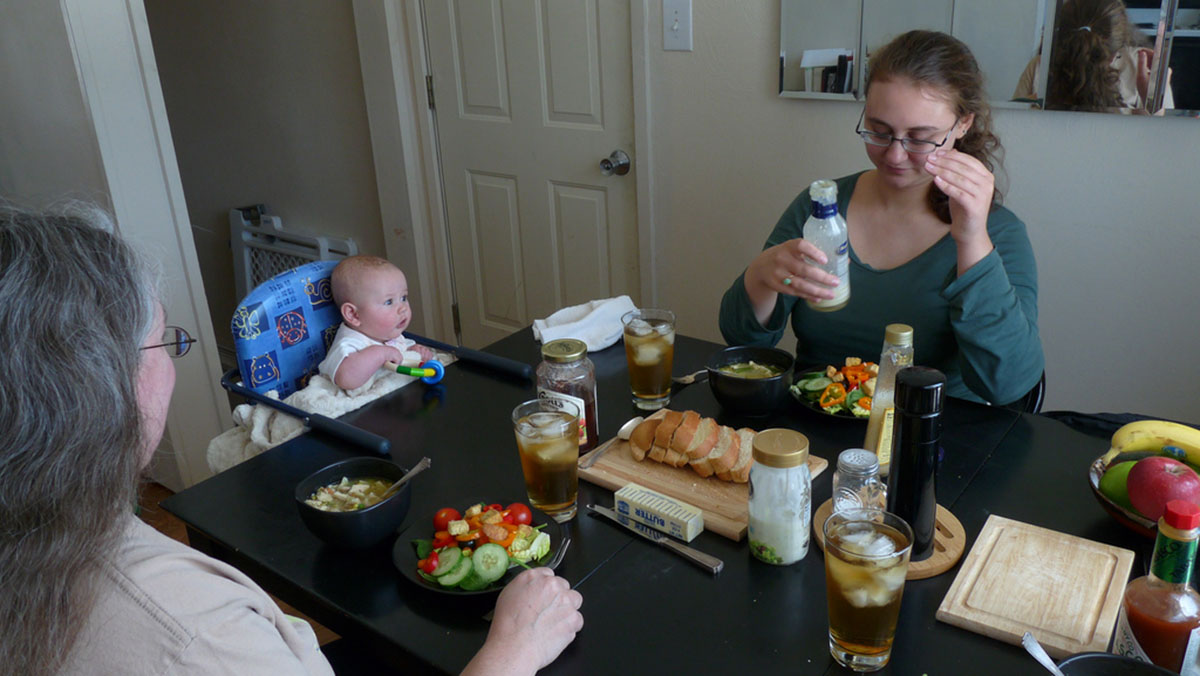Table of Contents
Research shows that flavors are already passed on from mother to baby during pregnancy. Babies constantly ingest small amounts of amniotic fluid, which take on the flavors of foods their mothers ate. If you were a fan of garlic during your pregnancy, it's unlikely that your baby will have trouble with it when you nurse her.

In short, there isn't a list of foods that all nursing moms should definitely avoid. If you have a family history of allergies, you may want to avoid those potential allergens. Otherwise, you can eat anything as long as you notice a reaction in your baby. Keep an eye out for sudden episodes of crying and bodily twitching, which could alert you to the possibility that your baby might be sensitive to some of the foods you eat. Diarrhea, sometimes in weird colors, is another symptom that should trigger you to take a closer look at your diet.
There is no reason to avoid garlic and spicy foods, including peppers, unless you do notice a reaction. Foods that have a reputation for being gassy are also usually OK. The fact that these foods lead to gas in you doesn't mean your baby suffers the same fate if you eat them, because breast milk uses the nutrients that pass into your blood stream.
Citrus fruits are often on the "avoid" list for nursing moms as well. They don't make your milk extra acidic, but some babies are sensitive to the proteins they do get from these fruits through your milk. If your baby is sensitive, you'll definitely notice.
There are some foods and beverages you want to be careful with when you breastfeed, however.
Most babies do fine if their moms drink coffee in moderation — which means no more than two to three cups, and not huge ones. There is evidence to suggest that babies who drank some coffee during pregnancy are less likely to be sensitive to caffeine in their milk, and that babies generally become less sensitive to caffeine with age.
That doesn't mean you can drink coffee all day long, but it does mean you can enjoy your morning coffee without feeling guilty.
See Also: Breastfeeding Your Baby: Why Breast Is Still Best
Alcohol requires more caution. Some doctors recommend pumping and dumping while you wait for the alcohol to leave your system, which is usually two to three hours. Others say drinking two beers or a glass of wine is perfectly OK. Some breastfeeding advocates hold that you can safely breastfeed if you can safely drive. Since only very minimal amounts of alcohol are compatible with driving, this approach makes some sense.
There is one final suspect food we should mention, and that's fish. It's not because raw or undercooked fish can cause infections, which is the concern during pregnancy, but rather because many types of fish contain large amounts of mercury these days. Catfish, shrimp, salmon, and canned light tuna are low-mercury fish that will give you and your baby the benefits of omega-3 fatty acids while minimizing the risks.
- Photo courtesy of Carin by FreeImages : www.freeimages.com/photo/266172
- Photo courtesy of Christopher, Tania and Isabelle Luna by Flickr : www.flickr.com/photos/the_luna/3399884491


Your thoughts on this